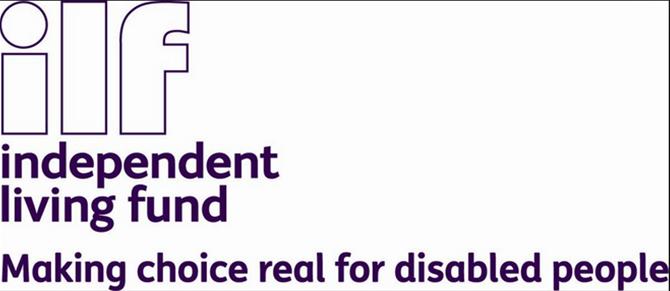Changes to PIP, DLA & the Independent Living Fund
DLA cuts hurting the most vulnerable

The Department for Work and Pension estimates that by the end of our lives almost half of us will be disabled. So it would seem that now more than ever, provisions for disabled people are of the utmost importance. Unfortunately for the 11 million disabled people currently in Britain, the government seems reluctant to acknowledge this.
The latest in a long line of radical welfare cuts are the changes being made to the Disability Living Allowance. DLA is a non-means tested benefit which helps with the extra costs that being disabled entails, particularly with mobility needs, and is set to be replaced with the Personal Independence Payment. PIP will be rolled out slowly, starting in June for new claimants and with most current claimants expected to have to apply in 2015.
According to The Hardest Hit, a group of 90 charities and organisations for disabled people, around half a million claimants will lose out when PIP comes into force. The changes to mobility payments are expected to hit particularly hard. Under DLA, claimants lost out on the enhanced mobility payment if they were able to walk unaided and in a safe manner for over 50 metres. Under PIP it is now those who can walk for 20 metres unaided that will be excluded.
Iain Duncan Smith has recently ridiculed the fact that 70 per cent of DLA claimants receive lifelong payments, with no need for further re-examination. However the reality is that most of these are people with lifelong disabilities and the alternative that the government plans to implement will involve appraisals and examinations by private firms who have no prior experience of the claimants’ history. On a good day, an arthritis sufferer might be able to walk 30 or 40 metres with ease. On a bad day it could be less than 20. The Department of Work and Pensions seems reluctant to take this into account and to acknowledge the wide range of barriers that disabled people must face every day. These assessments will largely be carried out by Capita and Atos, who were responsible for the fitness to work assessment fiasco that deemed thousands capable to work, despite having severe long-term illnesses.
Disabled people are already disproportionately more likely to live in poverty, be unemployed or be paid less than non-disabled people and now they are being hit from all sides by their own government. The ‘bedroom tax’ is a huge worry for many disabled people, as are the numerous cuts to social services.
DLA is a lifeline for many with disabilities and the cuts to mobility payments forced on huge numbers of people will serve only to erode their independence. The government is actively failing those who most need financial support. It is DLA which enables many disabled people to live full, happier lives. They claim that the aim of these reforms is not only to save money, but also to encourage disabled people who are currently unemployed to find work. But with no plans to reopen Remploy factories and with a clear scarcity of jobs on the market, it seems that the most vulnerable members of our society are being left out in the cold.
Please find link to original article
High Court gives green light to PIP legal challenge
The High Court has today granted permission for a full hearing of the judicial review challenge to the government’s introduction of more stringent qualifying criteria for mobility benefit.
Steven Sumpter can only walk a few metres with a stick and is otherwise dependent on a wheelchair. He was assessed as eligible for the high rate of the mobility component of Disability Living Allowance (DLA) last year and has used this to lease a Motability car. Along with thousands of others, he fears that he may lose this benefit under the new Regulations (1). Under the DLA scheme, a person is entitled to the higher rate if they are ‘unable or virtually unable to walk’. Usually claimants are considered to be virtually unable to walk if they cannot walk more than 50m. Under the new Personal Independence Payment (PIP) scheme, the relevant distance is reduced to 20m.
Karen Ashton from Public Law Solicitors who represents Mr Sumpter said:
“I am very pleased that the court has found that this case deserves a full hearing. The higher rate of mobility benefit can make an extraordinary difference to a disabled person’s life. But the Government failed to mention the reduction to 20m in their consultations and so those who might be affected did not have the chance to put their case and explain how devastating the consequences will be.”
Jane Young, an independent consultant currently working with the We are Spartacus campaigning network, said:
“Whilst it is true that under the PIP regulations and guidance, in order to be considered able to walk not more than 20 metres a claimant should be able to do so “safely, to an acceptable standard, repeatedly and within a reasonable time period”, the fact remains that 20 metres is an extremely short distance. Our concern is that by denying people with significant walking difficulties support for independent mobility, the regulations will seriously compromise their well-being. Disabled people who can only walk short distances face being stuck in their homes, isolated and unable to travel independently to health appointments, to work, to the shops or to social activities. This is especially the case in rural areas, where public transport is infrequent, inadequate and inaccessible and long travel distances are the norm.”
(1) The Social Security (Personal Independence payments) Regulations 2013)
Note: By agreement with the government’s lawyers and the court, only Steve Sumpter’s case is going ahead at this stage.
Please find link to original article
Disabled people vow to appeal against independent living fund ruling

Five affected say they will urge court of appeal to overturn ruling that upheld government's decision to scrap disability scheme
Five disabled people will ask the court of appeal to overturn a high court ruling that on Wednesday upheld the government's decision to abolish a scheme that helps them live independently.
Their lawyers had asked Mr Justice Blake, sitting in London, to declare unlawful the consultation process that led to the proposed axing of the £320m independent living fund (ILF).
Dismissing the application, the judge said many issues relating to the future funding of ILF users remained outstanding, but the consultation process had been lawful.
Lawyers acting for the five said Wednesday's ruling at the Royal Courts of Justice was flawed and did not reflect the evidence before the court.
The solicitors Scott-Moncrieff and Associates said: "All five are adamant that the process was flawed and that the impact of closure will be devastating for very large numbers of severely disabled people. They see it as vital that the decision is quashed and the matter reconsidered on a fair and lawful basis."
The five are among 19,000 people who receive assistance from the ILF, which the government plans to scrap in 2015. The average payout is £300 a week.
The money enables disabled people to employ assistants to help them with their personal needs, and to work and play an active part in their communities. Many fear they will be forced into residential care or trapped at home as a result of the abolition of the fund.
One of the five applicants for judicial review was Gabriel Pepper, from Walthamstow, east London, who accused the government of imposing "appalling cuts", which were "a vicious attack on the disabled".
The other applicants were Stuart Bracking, Paris L'amour, Anne Pridmore and John Aspinall, who brought his case with his mother, Evonne Taylforth, acting as his litigation friend.
Lawyers acting for the applicants had argued at a hearing in March that the government had not given clear reasons for closing the fund, that it failed to set out details of how much funding would be devolved and whether it would be ringfenced, and that the impact of the change on people in receipt of ILF support had not been properly assessed.
Campaigners have warned that the proposed closure of the fund, and its transfer to local authorities, will have a catastrophic impact on the independence and life chances of severely disabled people.
Richard Hawkes, chief executive of the disability charity Scope, said: "Twenty thousand disabled people will lose support for the basics in life when the independent living fund closes. The government presumes that the shortfall in this care and support will be met by councils, but this just isn't the case.
"Local care and support for disabled people is already underfunded to the tune of £1.2bn and councils are already struggling to cope. Expecting councils to pick up the tab when they are facing the biggest funding cuts in history is an impossible ask. Disabled people will lose out as a result.
"Not getting the support to wash, dress and leave your home is unacceptable. The government needs to invest more in social care to prevent disabled people being condemned to a life without basic dignity and invisible from society."
